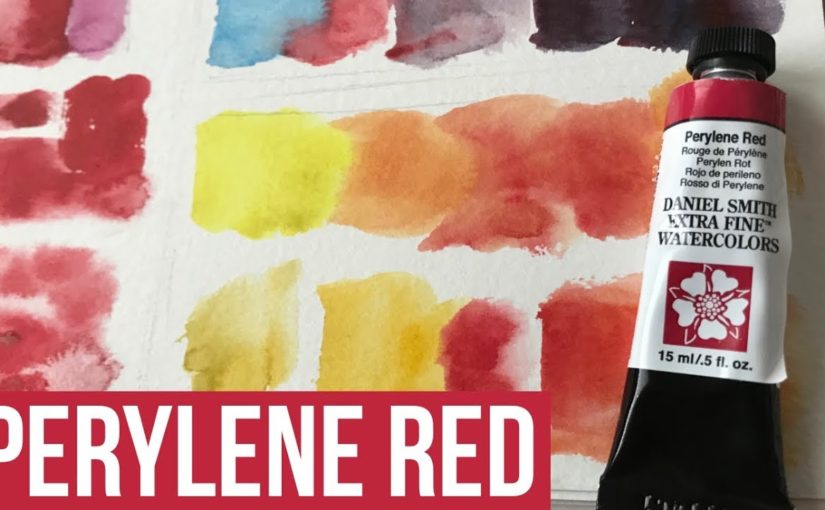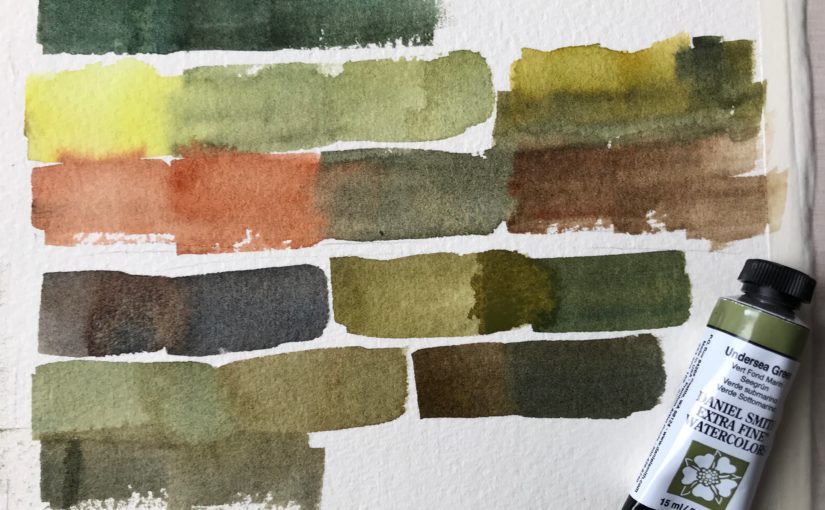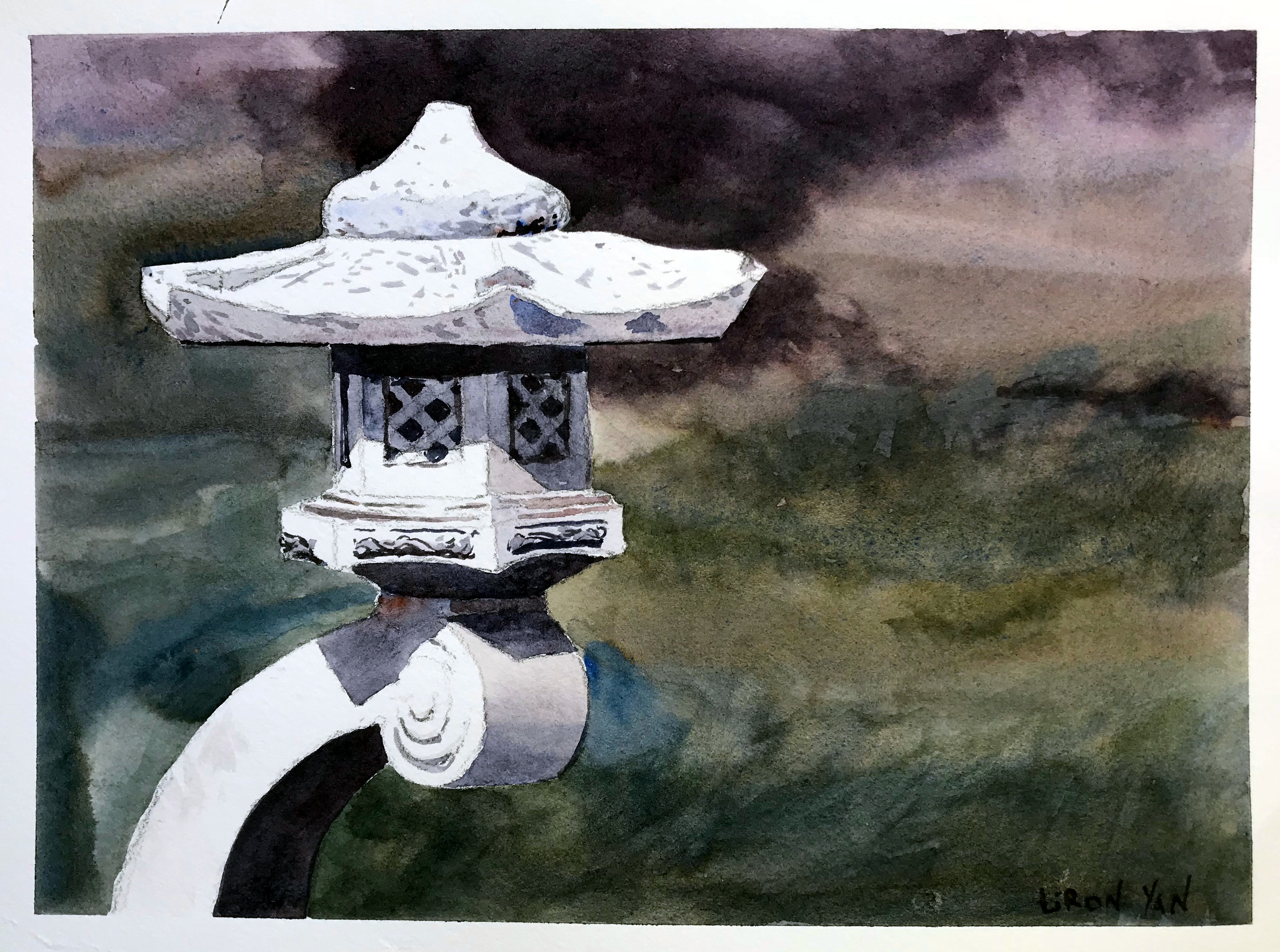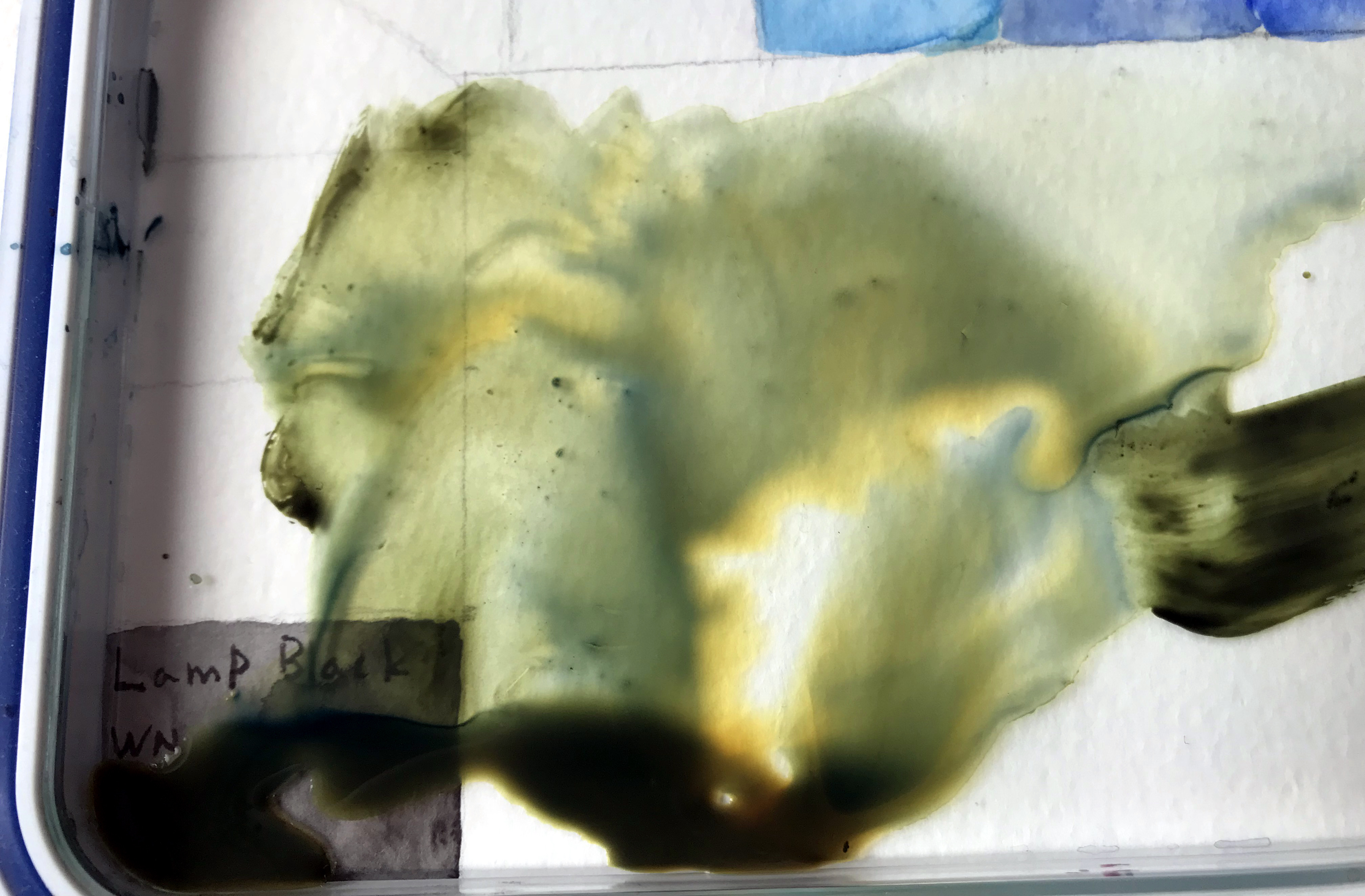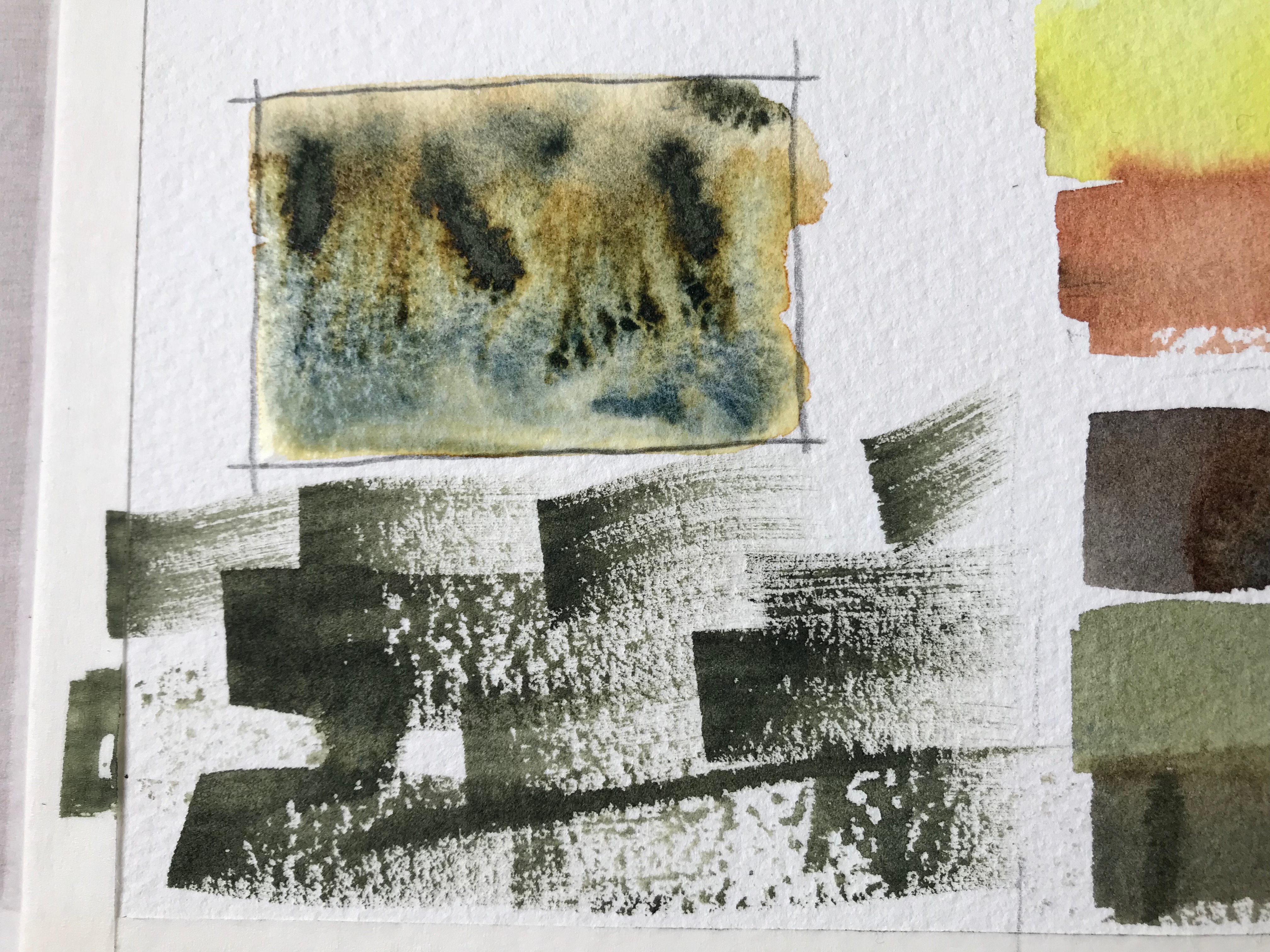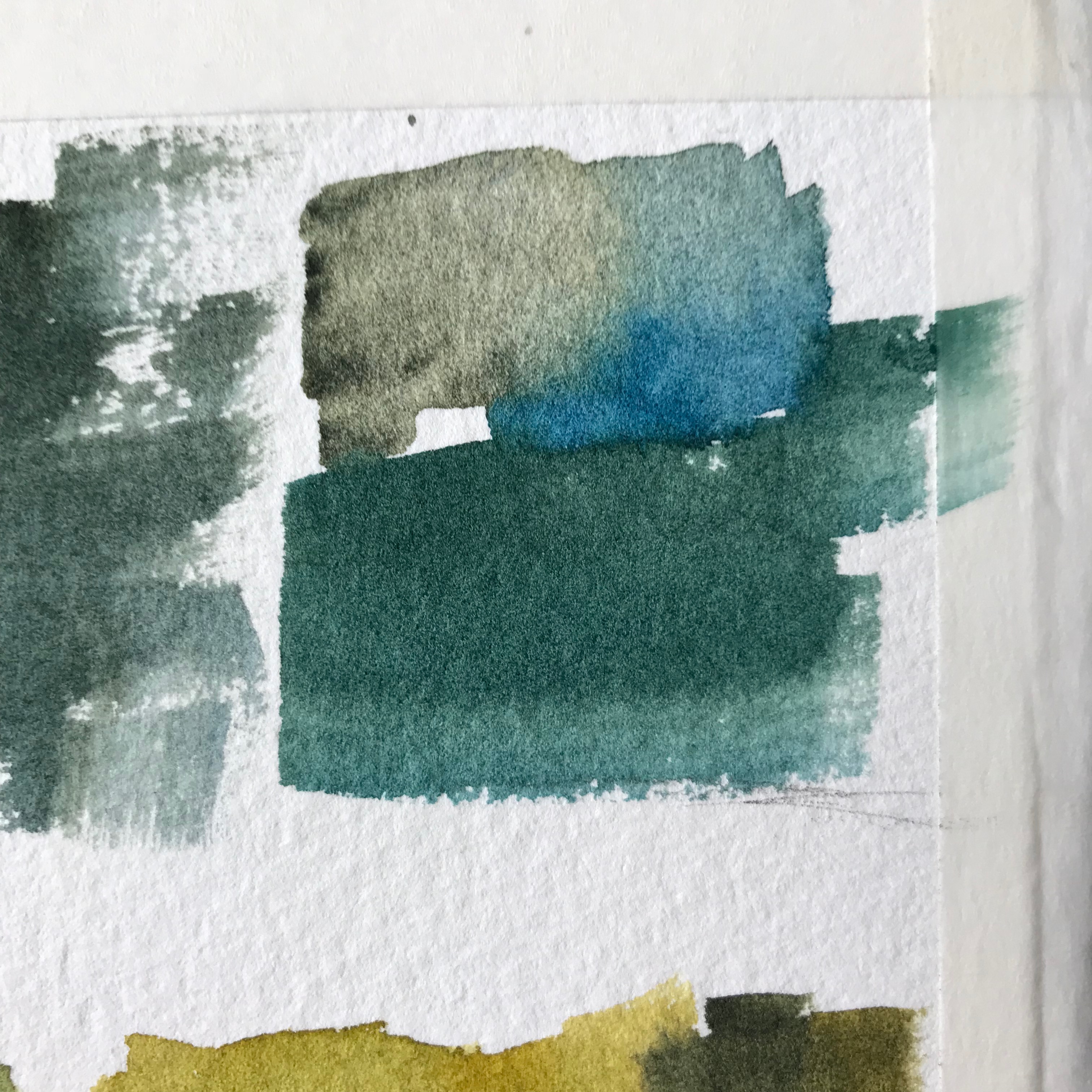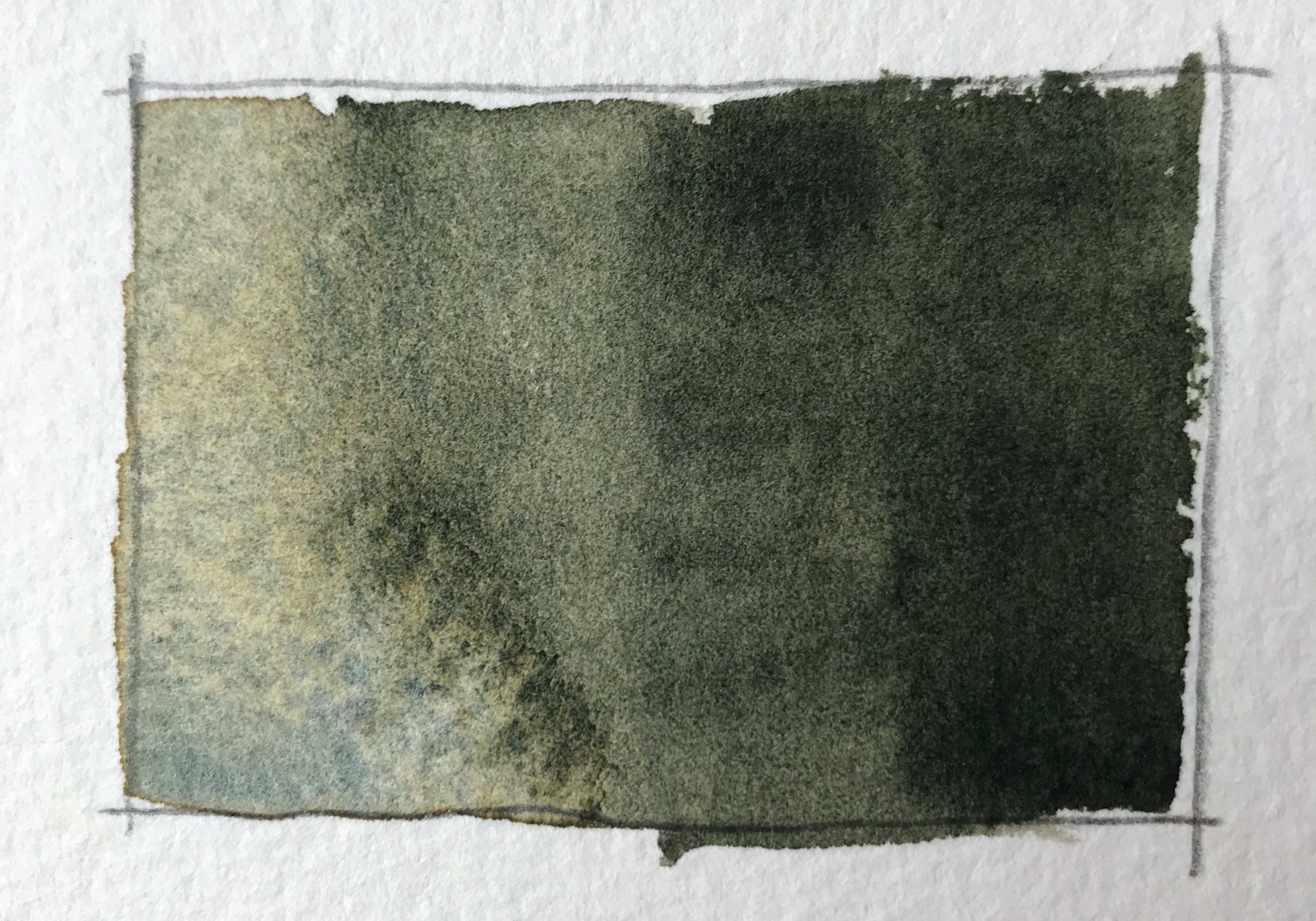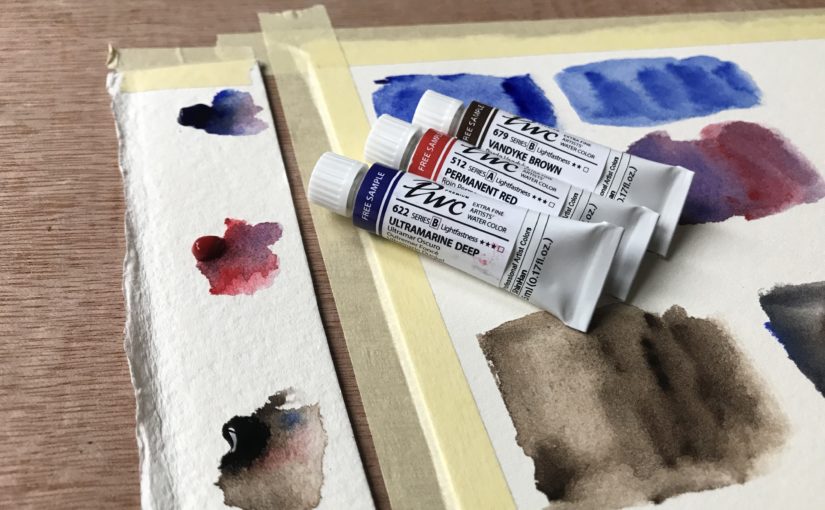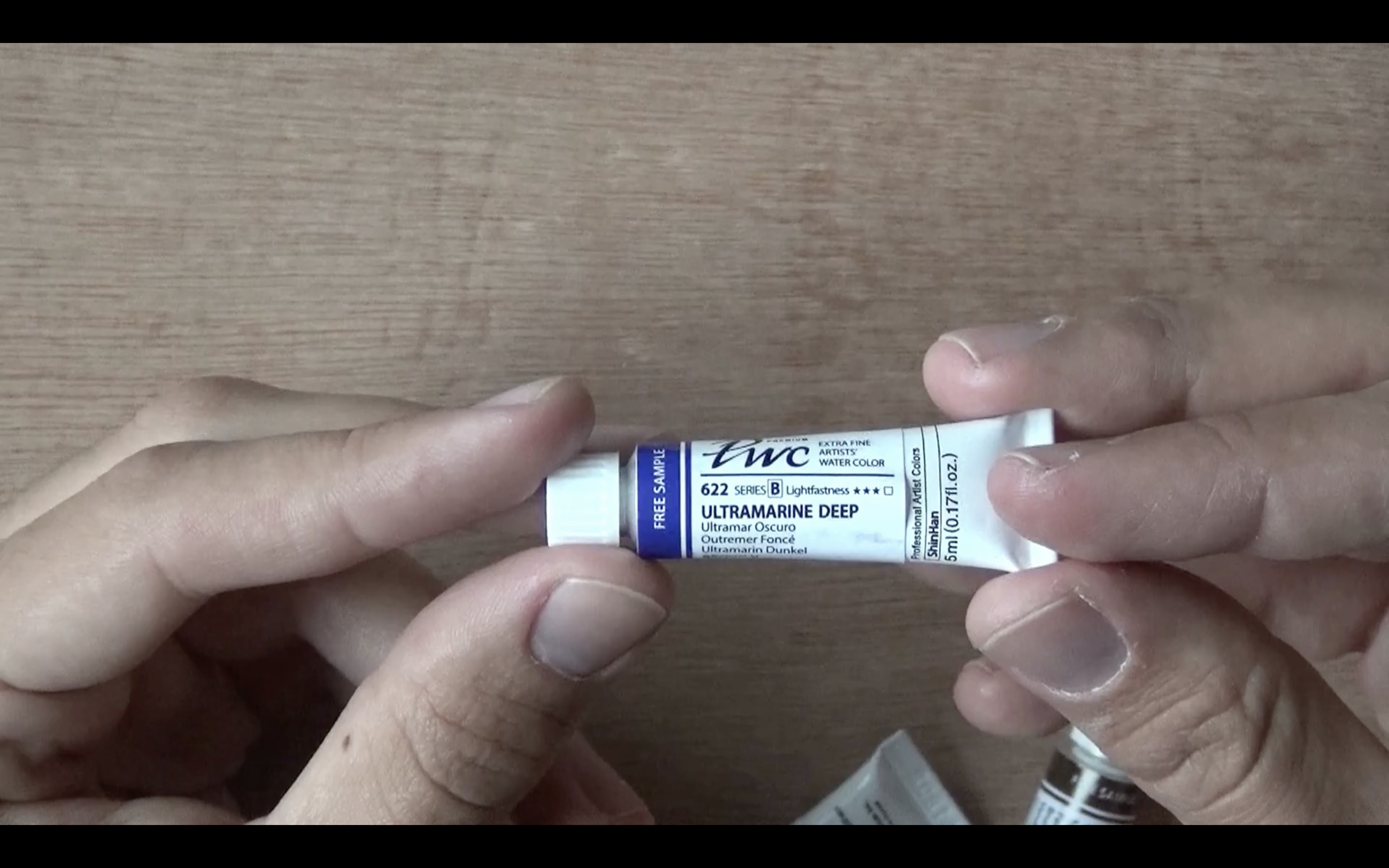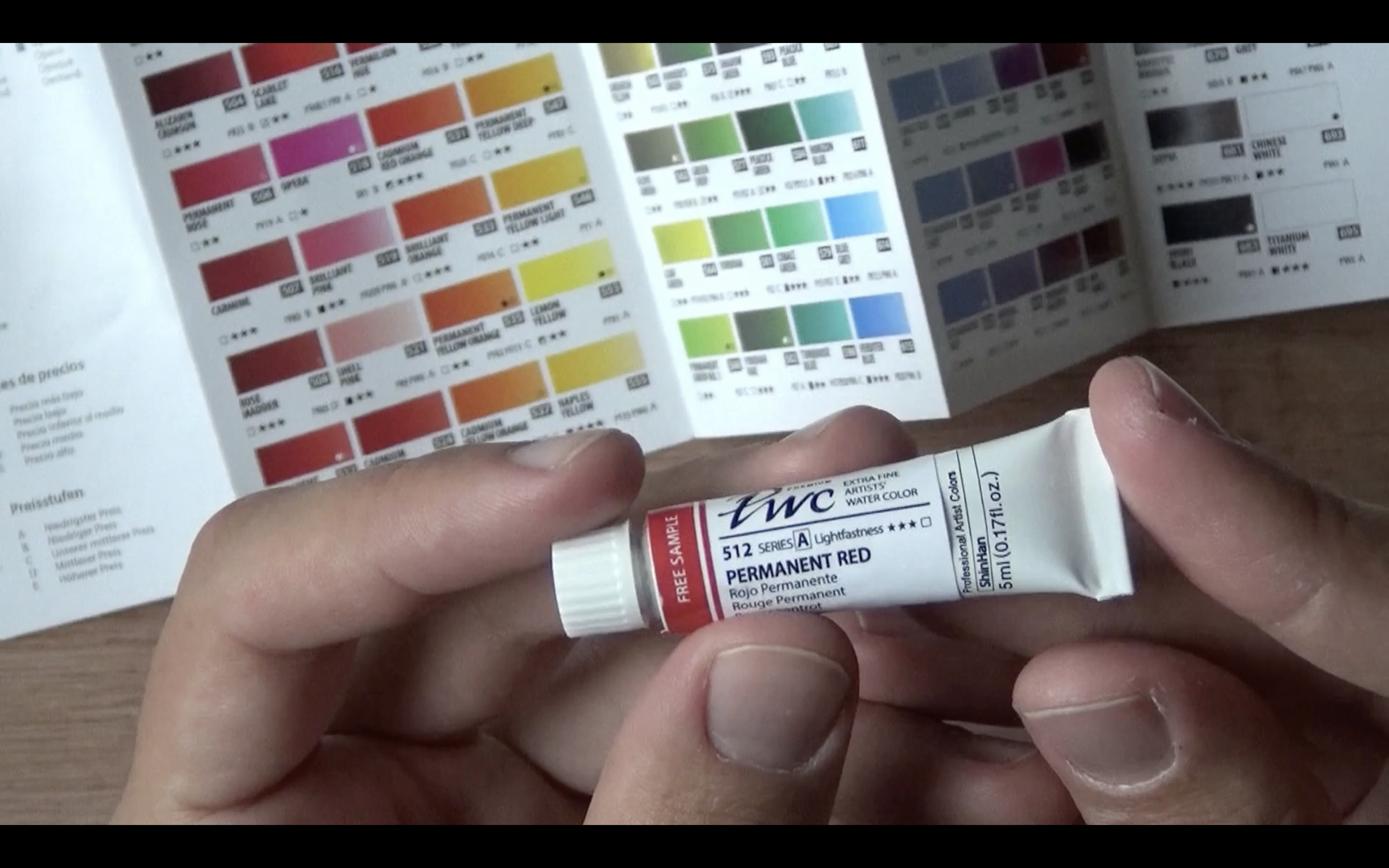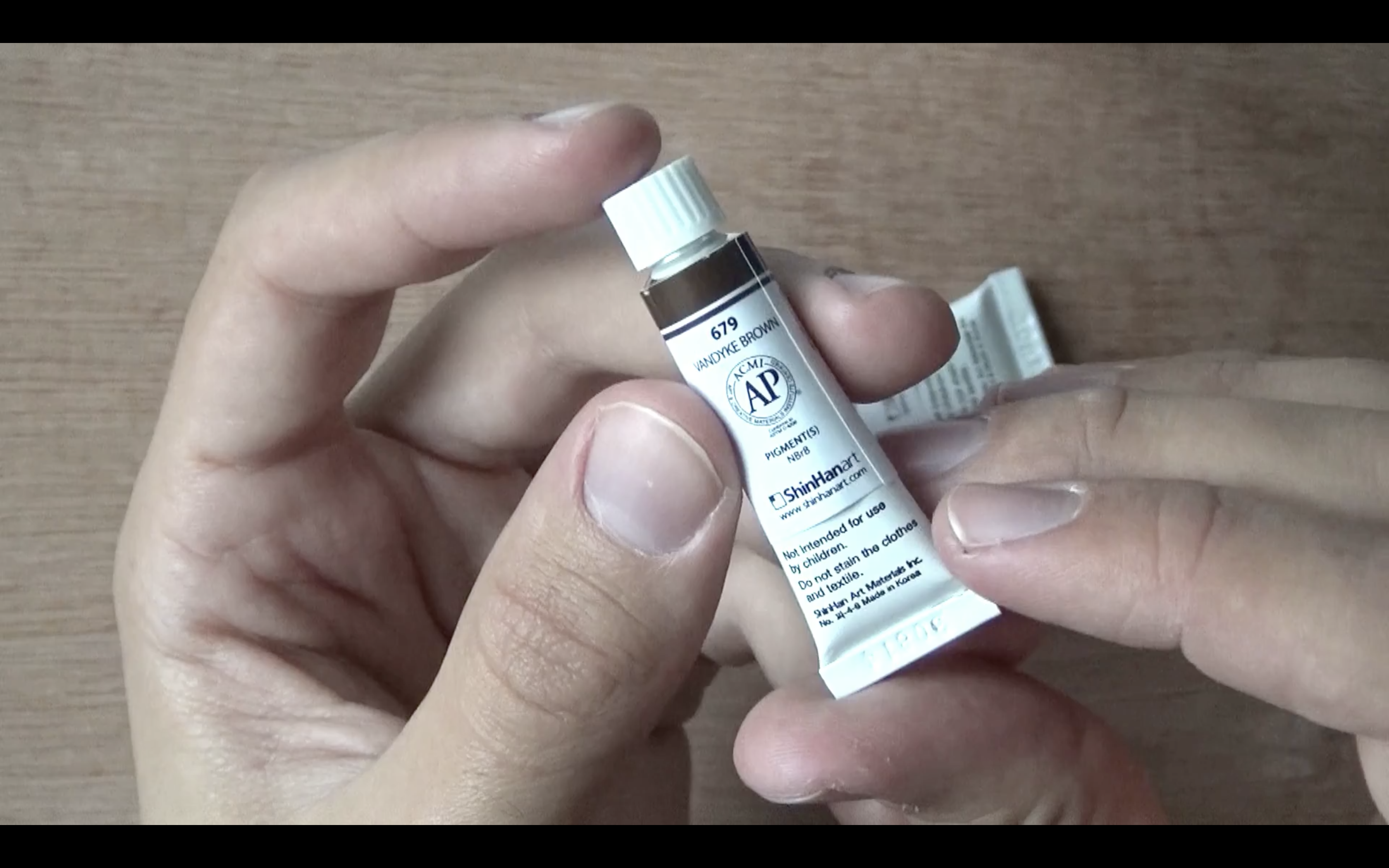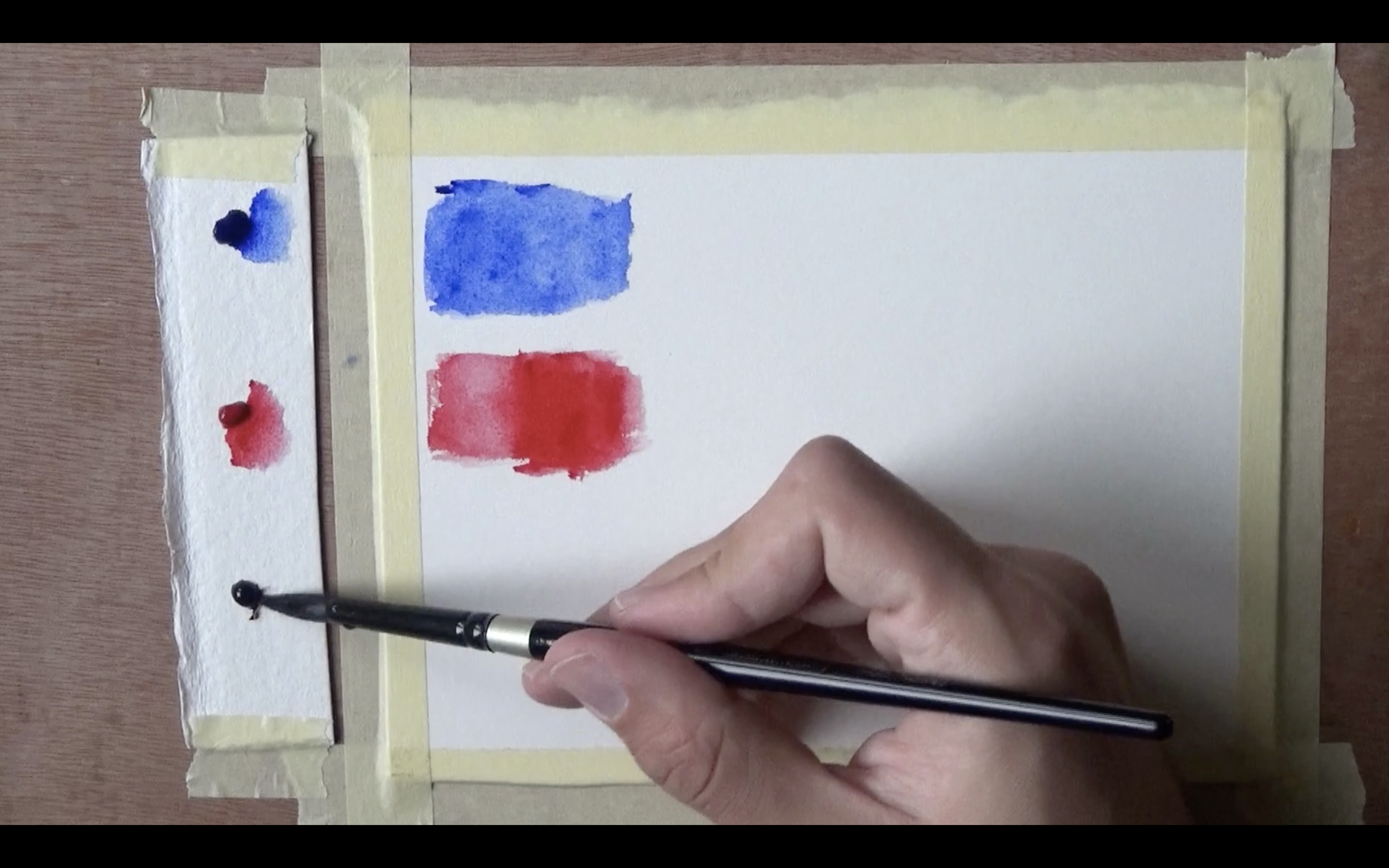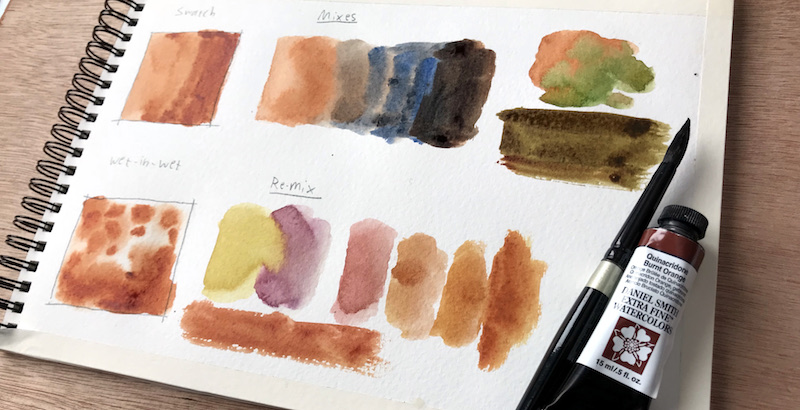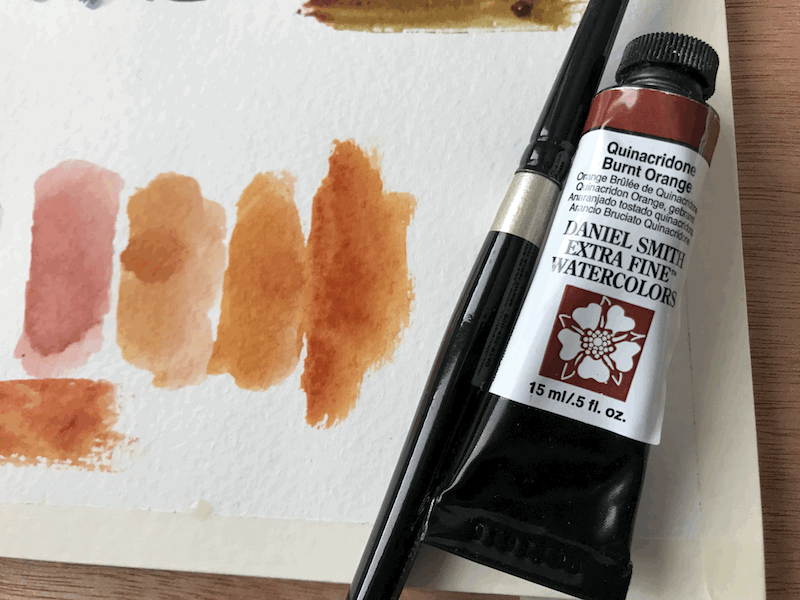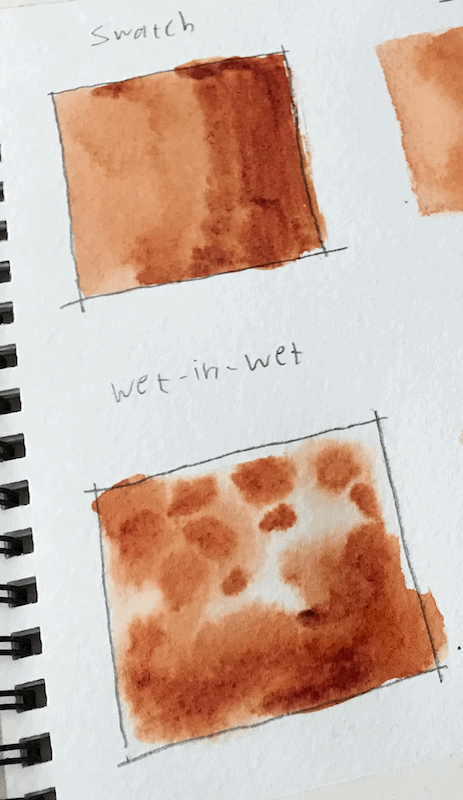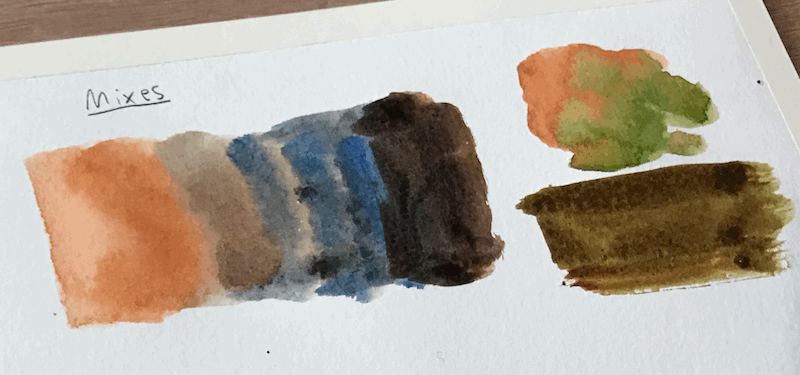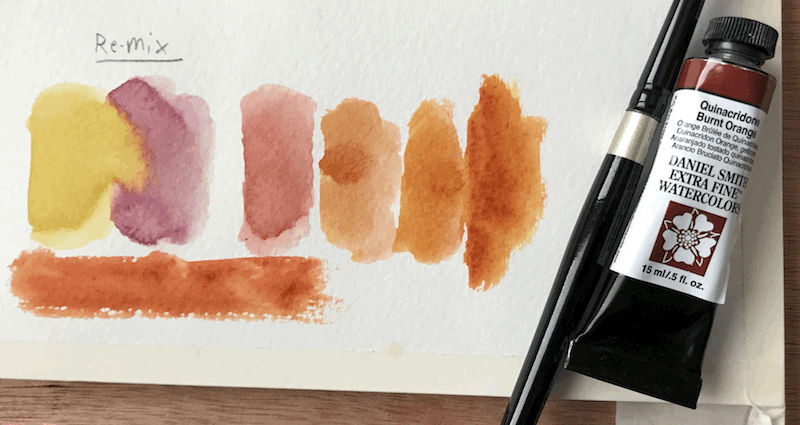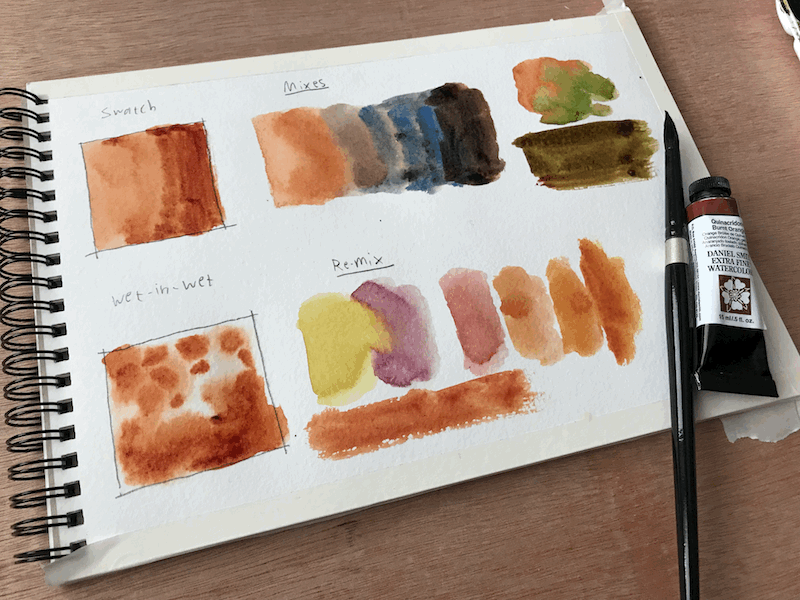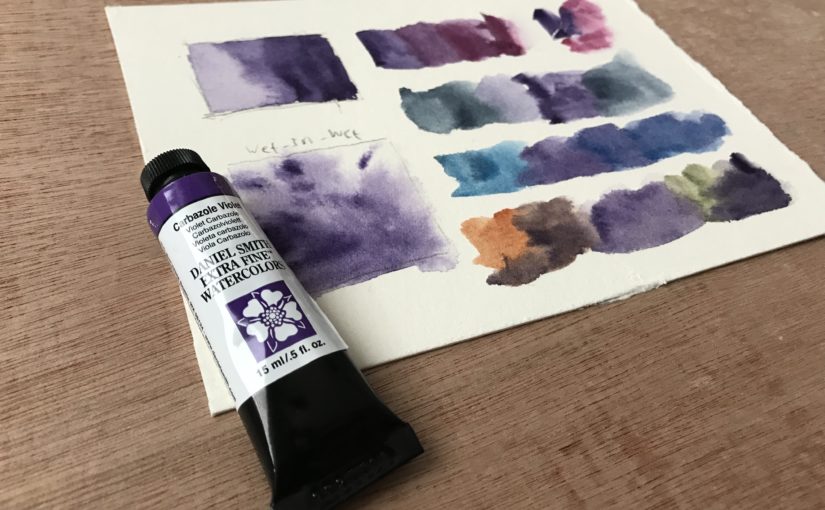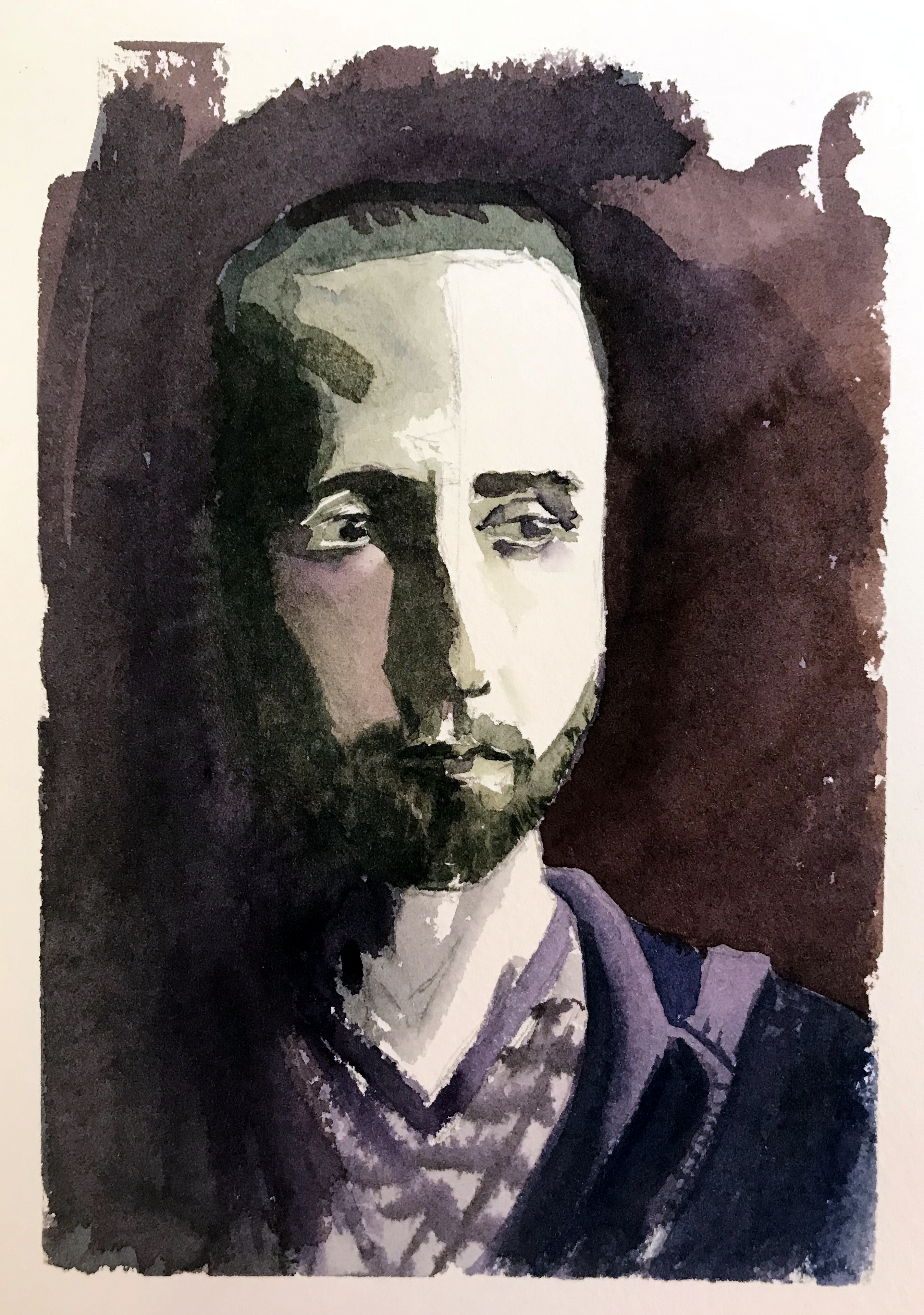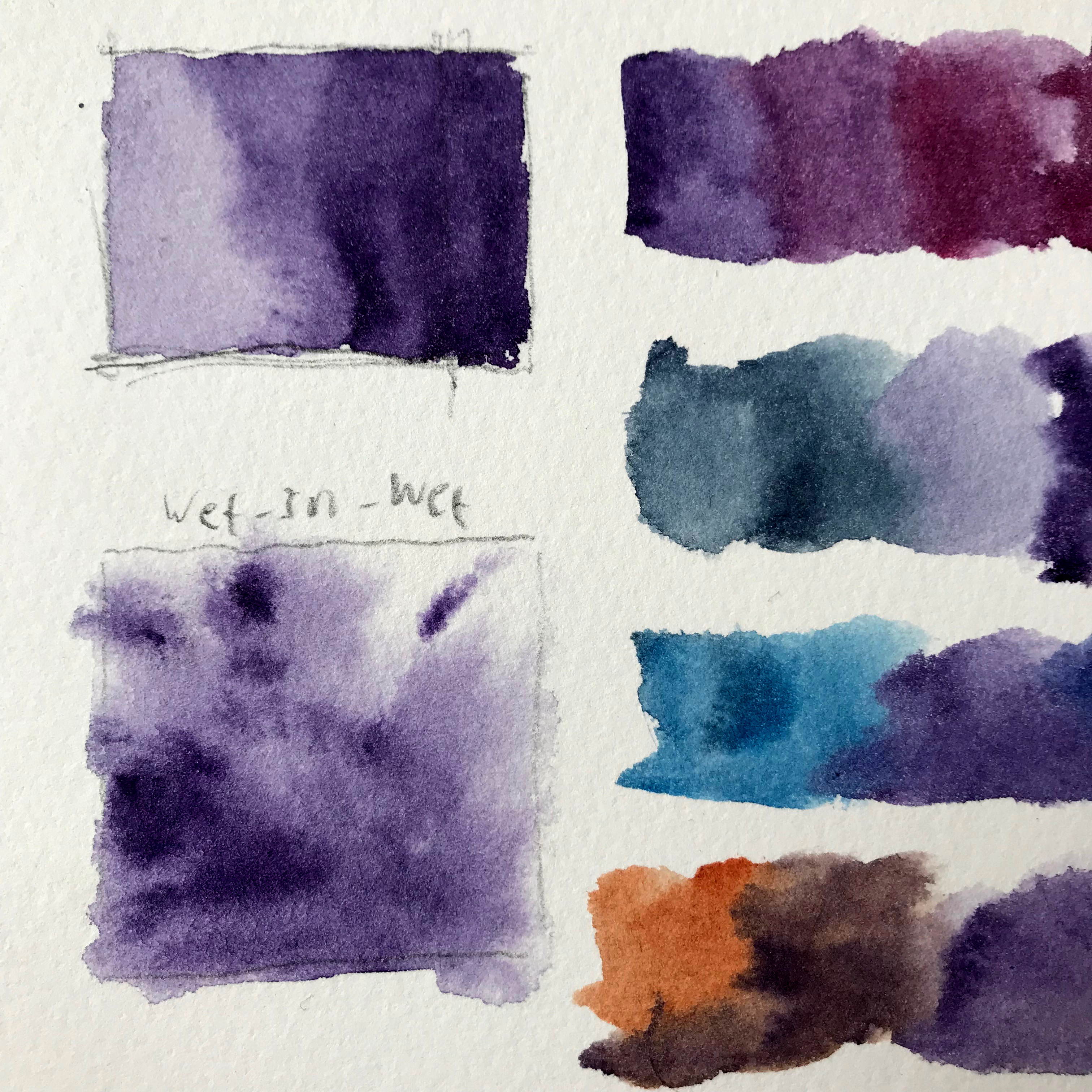Hi there! Today I want to share with you a review I did for Perylene Red paint, as part of The Paint Show.
This paint is by the Daniel Smith brand, and I got it as part of their Primary Set.
Here’s the full video review, scroll down to read more.
Why I LOVE Perylene Red
This is a paint I really love, and for multiple reasons. The first is that it’s relatively neutral.
I compared it to Pyrrol Scarlet (left) and Quinacridone Rose (right), and you can see how it’s in the middle. Not too warm, not too cool.
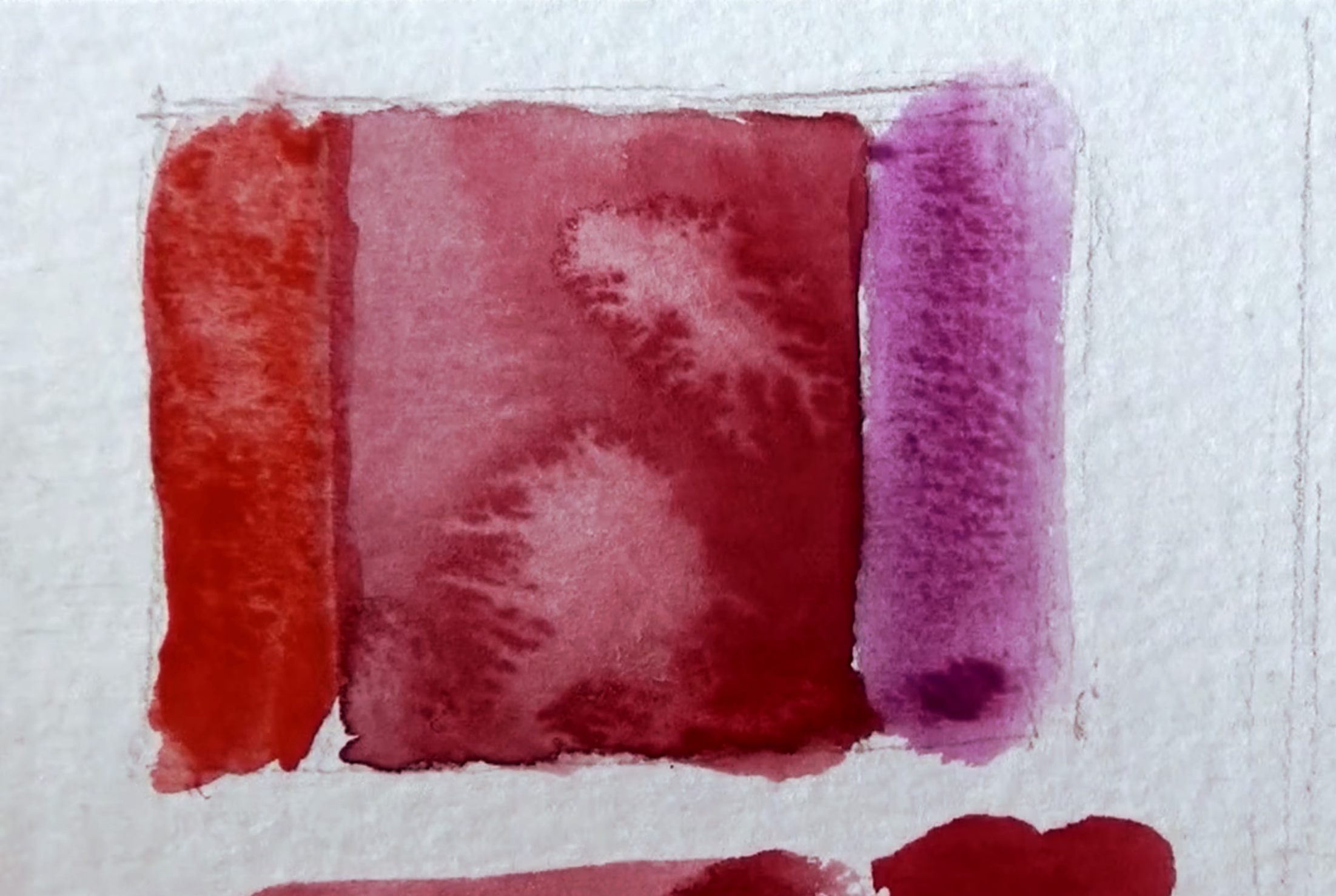
It’s also a semi-transparent paint, has excellent lightfastness and pretty easier to lift, if necessary.
Perylene Red by Daniel Smith – Info
Pigment: PR178
This pigment is said to go through a significant shift when drying. It’s supposed to lighten slightly, and loose about 20% of its saturation (according to HandPrint.com). I didn’t notice such a significant difference.
It’s also highly active in wet-in-wet, and creates large blossoms.
Excellent Lightfastness
Semi-Transparent
Medium-Staining
Non-Granulating
Series 3 – goes on Amazon for ~13$-14$.
Link to purchase (affiliate, you pay the same price, I get a commission):
Tube: http://amzn.to/2GrbC9Q
Set: http://amzn.to/2rJ4eTZ
Conclusion
Perylene Red is great if you are looking for a good primary red that’s relatively neutral. I love the way it handles and behaves, and enjoy using it.
I’d also like to add that getting the Primary Set is highly economical, and results in a relatively cheap “per tube” price. It contains three useful paints (this one, alongside Hansa Yellow and French Ultramarine). All come in 15ml.
Here’s my review of the Daniel Smith Primary Set:
And the link to purchase it: http://amzn.to/2rJ4eTZ
I hope you enjoyed this review of Perylene Red, and I’ll talk to you again really soon!
– Liron

